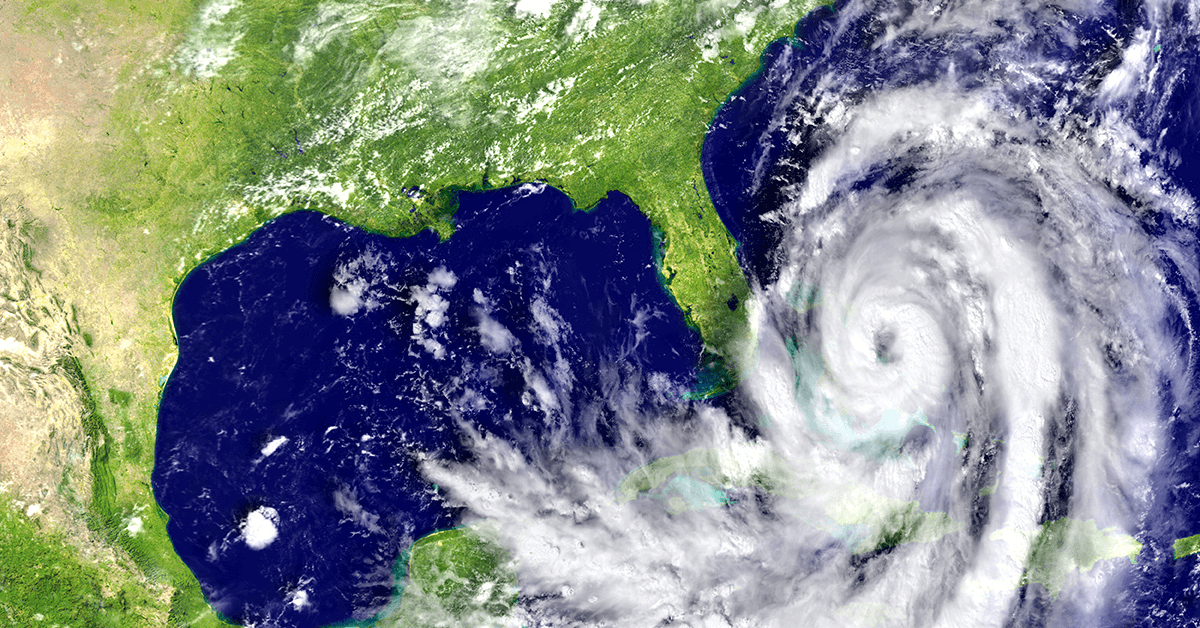
The Pandemic Adds New Challenges as Floridians Prepare for Hurricane Season
The transition from spring to summer along the Southern Atlantic coast is rarely a smooth one. Atlantic Ocean temperatures rise through May and into June triggering the start of The Atlantic Hurricane Season.
CNN meteorologist Chad Myers said in a recent CNN Weather article “With ocean temperatures above normal most of the year, the middle of May will likely become the new start of tropical storm season.” Veteran homeowners in Florida, which ranks as number one for most hurricanes between 1851 and 2018, are likely already preparing themselves, and their homes, for the predicted active hurricane season.
With the current pandemic, and a hurricane season that has been trending earlier than June over the past five years, there is no time like the present to start thinking about how you plan to protect yourself and your home this time around.
Creating an evacuation plan is an essential part of any hurricane season. But given the unique circumstances surrounding COVID-19, and the effect on the country’s infrastructure, you’d be wise to revisit some key points.
- Know your zone: Many counties in the state of Florida have a designated evacuation zone. Understand where you reside so you can follow the correct evacuation orders or, in some cases, stay put orders. Florida Division of Emergency Management Director Jared Moskowitz, according to a USA Today article, is planning to release COVID specific guidelines that may require people in hurricane-fortified homes to stay put during a storm.
- Plan your route: If you plan to evacuate to a more inland hotel or motel, checking whether or not a particular location is operational is imperative during COVID-19 when many locations, struggling to make ends meet due to a drop in tourism, have closed.
- Understand your town’s emergency plan: During a typical large-scale evacuation, emergency managers have used buses to move people out of harm’s way and they have converted schools into shelters. But, given social distancing protocol related to COVID-19, Moskowitz is considering using hotels instead of schools and Ubers or Lyfts instead of buses so people can maintain a safe distance from one another during evacuation and while they hunker down and ride out the storm.
Preparing your home physically for hurricane season is important, but just as important is preparing your insurance policies to accurately reflect your home’s value and to properly cover the potential damage that typically comes along with a hurricane.
- Don’t forget flood and windstorm insurance: Standard homeowners insurance does not cover flood damage, which is different from water damage created by a burst pipe or leaky shower. The Federal Emergency Management Agency (FEMA) reported only about 22% of Floridian homeowners in 2017 had flood insurance. It is typical for flood insurance policies to take up to 30 days to become effective, so waiting until the storm is on the horizon is not a smart choice.
Similar to flood insurance, most standard homeowners’ insurance policies do not specifically cover wind damage caused by hurricanes. You should contact your insurance company to find out the specifics of your policy.
- Gather your documents: Information such as policy numbers, emergency contact information, bank documents, lists of household items, and more should be gathered and stored in a waterproof container, or on the Cloud or similar internet-based storage network. PrepareFL has an extensive list of important documents to gather.
- Prepare your home: This is a great time to perform a check of the exterior of your home and remove any loose tree limbs, check for unsecured items, and ensure that your windows and doors are watertight. You may want to also consider installing hurricane shutters if your home doesn’t already have them.
Inside your home, you can prepare by creating an emergency kit containing essential food, water, and supplies to last at least three days. However, Florida Power & Light stated, “It may take extra time to restore electricity with the possibility of limited help from outside resources and the added precautions of social distancing.” So, gathering non-perishable supplies to last beyond three days, may make sense during COVID-19.
During hurricane season, and all year long, you can sign up to receive weather and other emergency alerts through a variety of national and local apps and notification initiatives.
- FEMA App: This app, available for Apple and Android, provides users with weather alerts for up to five locations, provides emergency safety tips, and helps you find emergency shelters and disaster recovery centers in your area.
- AlertFlorida: This statewide notification initiative allows you to search your town and will provide you with a list of emergency alert resources specific to your city or county.
- National Weather Service: On this website, you’ll find a round-up of apps, websites, and services along with descriptions of services and price for the service (when applicable) in an easy to read chart.
Mother nature won’t change her plans because we’re dealing with a global pandemic. While preparation is always best at the onset of hurricane season, planning ahead, thoroughly prepping, and staying informed are the best ways to ensure the safety of you and your home.
Time to Focus on Affordable Housing
Taxes on real estate are not the answer. Sign the petition calling on Congress to address our country’s housing shortage.





